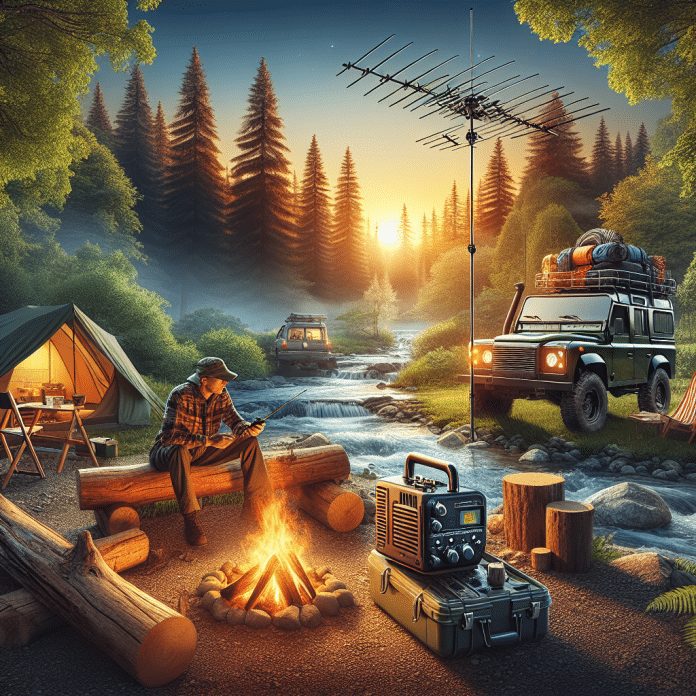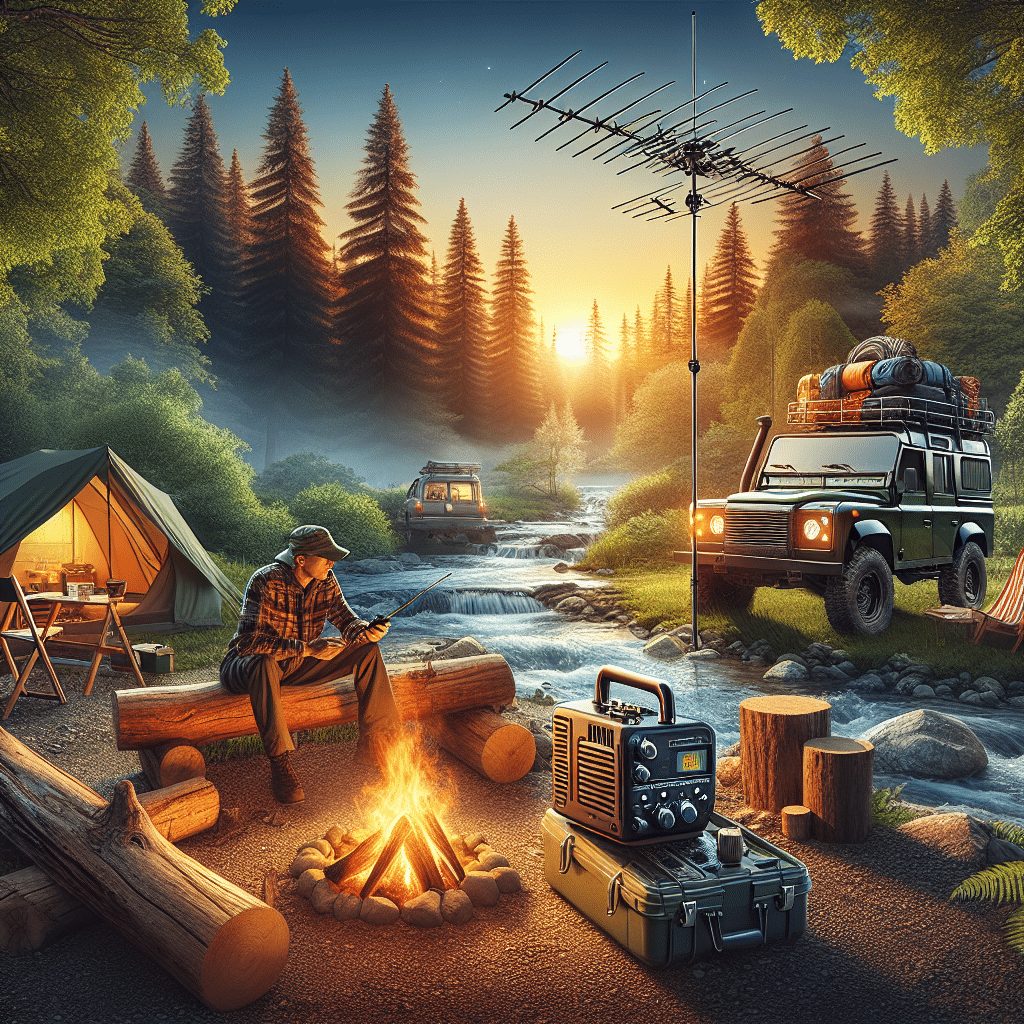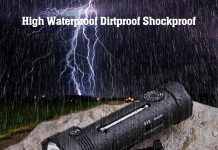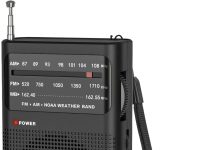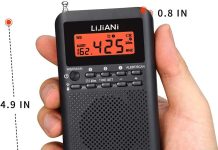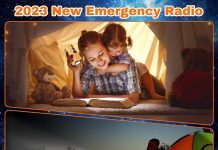When you’re out in the great outdoors, it’s essential to have a reliable communication tool that can keep you informed and safe. One such tool is a radio that can receive alerts. But how can you guarantee that your radio will receive these crucial notifications while camping? In this article, we’ll explore some practical tips and tricks to ensure that your radio stays connected and receives alerts, allowing you to stay informed and prepared during your camping adventures.
Review contents
Selecting the Right Radio
When it comes to selecting the right radio for camping, it’s important to understand the different options available to you. There are various types of radios on the market, including handheld two-way radios, weather radios, and CB radios.
If you want to stay connected with weather alerts while camping, it is highly recommended to choose a radio with weather alert capability. These radios are designed to receive emergency weather alerts from the National Oceanic and Atmospheric Administration (NOAA). The weather alert feature ensures that you will be alerted to any severe weather conditions in your area, keeping you informed and safe during your camping trip.
Another factor to consider when choosing a radio is battery life and power source. Look for radios that have long battery life or the ability to be powered by different sources such as regular batteries, rechargeable batteries, or even solar power. This will ensure that you have a reliable power source for your radio during your camping trip.
Finding a Suitable Campsite
Once you have selected the right radio, it’s important to find a suitable campsite that has good radio reception. Research campgrounds in the area you plan to camp and read reviews or ask fellow campers about the radio reception in those locations. Choosing a campsite with good reception will significantly improve your radio experience, making it easier to receive weather alerts and stay connected.
Another aspect to consider when selecting a campsite is avoiding areas with interference. Look for campsites that are away from power lines, large metal structures, or dense foliage that may interfere with radio signals. By choosing a campsite with minimal interference, you’ll enhance the effectiveness of your radio.
Optimizing antenna placement is another vital consideration. Position the antenna as high as possible, ensuring it has a clear line of sight to the radio tower. Try extending the antenna fully and experimenting with different angles to find the optimal position for reception.
Preparing Your Radio
Before you head out on your camping trip, there are a few things you need to do to prepare your radio. Firstly, check if there are any required licenses or permits for operating the radio in your camping area. Some areas may have specific regulations, and it’s important to comply with them to avoid any legal issues.
Next, familiarize yourself with the controls of your radio. Understand how to adjust the volume, change channels, and activate the weather alert feature. Taking the time to become familiar with your radio’s controls will make it easier to navigate and utilize its features effectively.
Setting up preset channels and weather bands is also essential. Program the frequencies of local weather stations and emergency channels so that you can easily switch to them when needed. This will allow you to stay updated on weather conditions and receive emergency alerts swiftly.
Antenna Considerations
The antenna plays a crucial role in the reception quality of your radio. Understanding different antenna types can help you make an informed decision. Some radios come with a built-in antenna, while others offer the option to connect an external antenna for improved reception. Consider the range and coverage you need and choose the appropriate antenna type accordingly.
Using an external antenna can greatly enhance your radio’s reception, especially in areas with weak signals. These antennas can be mounted higher and away from potential interference sources, allowing for better signal reception. If you anticipate being in an area with poor reception, investing in an external antenna is a wise choice.
Positioning and extending the antenna correctly is vital for optimal reception. Aim for a clear line of sight to the radio tower, avoiding any obstructions. Extending the antenna fully can also improve reception, as it enhances the antenna’s ability to capture signals. Differentiate between signal strengths by experimenting with antenna positioning and extension until you find the best reception quality.
Understanding Weather Alert Systems
To ensure your radio receives timely weather alerts, it’s important to understand the different weather alert systems available. One popular system is the NOAA Weather Radio (NWR), which broadcasts continuously updated weather information from your local area. These broadcasts include watches, warnings, and other emergency information that can help you stay prepared and safe while camping.
Familiarize yourself with how the NOAA Weather Radio works, including the specific frequencies used in your area. This knowledge will allow you to stay tuned in to important weather updates and make informed decisions based on the information received. Consider referring to the NOAA’s official website or contacting your local weather service for more detailed information on the weather alert system in your location.
Configuring the weather alert features on your radio is crucial for receiving alerts promptly. Some radios allow you to set specific alert types, such as tornado warnings or flood alerts, so you only receive notifications relevant to your location and needs. Take the time to understand the alert features on your radio and configure them accordingly to ensure you are receiving the appropriate alerts.
Familiarizing Yourself with Local Alert Services
In addition to the weather alert systems, there may be local alert services specific to your camping area that you should familiarize yourself with. Research local weather alert services, such as community alert systems or emergency notification services, that provide additional information and alerts specific to your location.
Consider subscribing to these local alert services to receive notifications directly to your phone or email. Many communities have these services in place to provide critical updates during emergencies or severe weather events. Subscribing will ensure that you receive timely and accurate information that can help you make informed decisions and stay safe during your camping trip.
Downloading location-based weather apps can also be beneficial. These apps use GPS or other location information to provide weather alerts specific to your current location. They can be a valuable addition to your radio setup, allowing you to receive alerts even when you’re away from your campsite.
Testing and Troubleshooting
Before embarking on your camping trip, it’s essential to perform pre-trip radio tests. Test your radio in different locations to ensure it is receiving signals properly and that the weather alert feature is working as expected. Identifying any issues before your trip will give you time to troubleshoot or seek professional assistance if needed.
Checking for firmware updates is another important step. Manufacturers often release updates to improve radio performance, add new features, or address any known issues. Check the manufacturer’s website or contact their customer support to see if there are any firmware updates available for your radio model. Updating the firmware can help optimize your radio’s functionality and ensure it performs at its best.
If you encounter any reception issues during your camping trip, troubleshoot common problems. Check the antenna positioning and extension, ensure the radio is set to the correct frequency or channel, and verify that your batteries or power source are functioning properly. Review the user manual or contact customer support for further assistance if needed.
Optimizing Power Consumption
When camping, it’s important to optimize power consumption to ensure your radio remains operational when you need it most. Take advantage of power-saving features on your radio, such as auto-power off or adjusting the backlight settings. These features can help conserve battery life and extend the usage time of your radio.
Conserving battery life is essential, especially if you are relying on batteries as your power source. Carry extra batteries and replace them as soon as you notice a decrease in power. Consider using rechargeable batteries and a portable charger, as this can be a more sustainable and cost-effective option in the long run.
Having backup batteries or a power source is highly recommended. If you have access to electrical power at your campsite, consider using a power adapter to connect your radio. Alternatively, having spare batteries or a portable power bank can provide peace of mind knowing that you have a backup power source if needed.
Staying Updated with Local Weather Conditions
One of the main reasons for having a radio while camping is to stay updated with local weather conditions. Listening to regular weather reports is crucial in monitoring any changes or severe weather warnings. Tune in to local weather stations or use your radio’s scan feature to find reliable sources of weather updates.
Another method of staying updated is by monitoring emergency channels. These channels are dedicated to providing crucial information during emergencies or severe weather events. Program these channels into your radio’s memory and regularly check them for any important announcements or alerts.
Paying attention to weather patterns is also important. Observe the sky, clouds, and other natural indicators that may signal changes in the weather. Understanding the signs of impending storms or severe weather can help you take necessary precautions and ensure your safety while camping.
Educating Yourself on Emergency Procedures
While having a radio is essential for staying informed during emergencies, it’s equally important to be knowledgeable about emergency procedures. Knowing what actions to take in an emergency can make a significant difference in ensuring your safety and the safety of those around you.
Take the time to familiarize yourself with emergency codes and signals that may be broadcasted over the radio or used in your camping area. Understanding these codes will allow you to interpret emergency announcements accurately and respond accordingly.
Additionally, be prepared with safety equipment. Carry a first aid kit, emergency supplies, and tools that may be necessary during emergencies. Knowing how to use these items properly can make a world of difference when faced with unexpected situations.
By following these guidelines and adequately preparing your radio setup, you can ensure that your radio receives alerts while camping. Staying informed and connected with reliable weather updates will not only enhance your camping experience but also keep you safe during your outdoor adventures.

